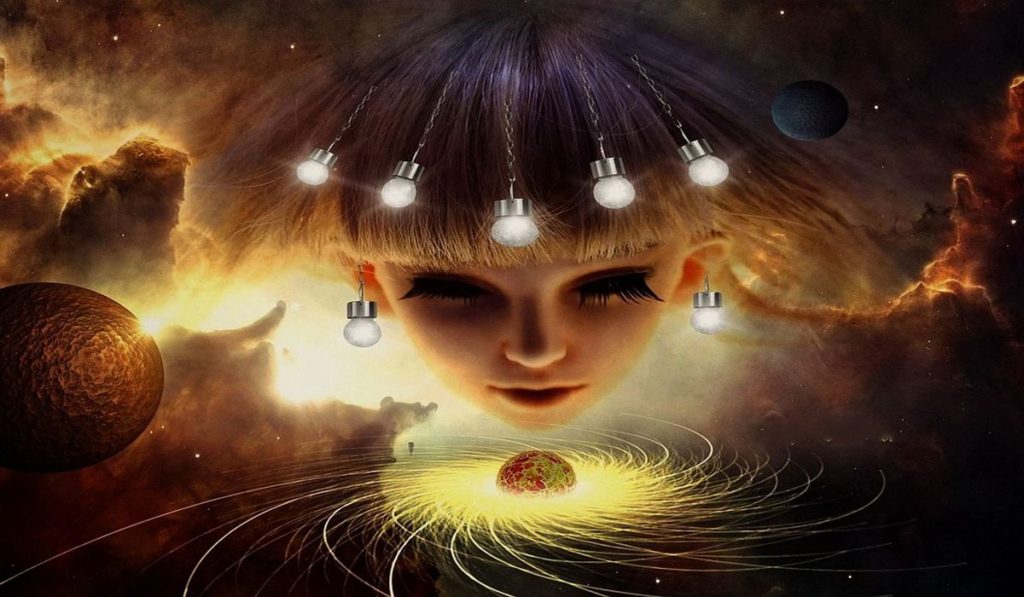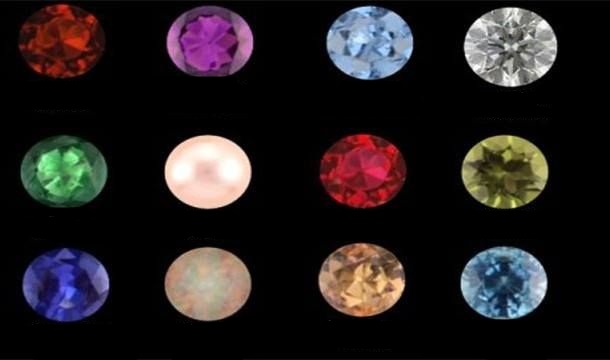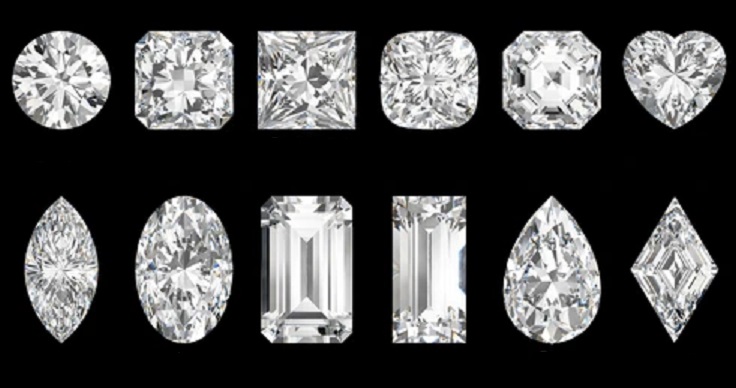
The following is an attempt to reconcile ancient Western esoteric psychology with ancient Eastern esoteric psychology. The idea is that all human psychopathological conditions fall into one of twelve categories, the categories being all permutations of genetic, environmental and spiritual (in the first place) and clay, iron, silver and gold (in the second place).
The first condition is genetic clay. This refers to a person who is weak for genetic reasons.
In this category are all sufferers of genetic conditions which make them weaker or more passive than normal. The typical outcome of falling into this category is that a person becomes resentful and bitter. Hatred for the world and for life in general is characteristic of people in the first condition.
This is also the category for people who are simply dumb. Most people not naturally intelligent enough to find a place in the world become resentful. In practice, there’s good reason to categorise such people with the other genetic unfortunates. In principle, it doesn’t matter much if a person is genetically weak for physical or mental reasons, because the attitude will be similar.
The second condition is genetic iron. This refers to a person who is cruel for genetic reasons.
The usual reason for a person to fall into this category is that they are physically stronger than average, but mentally weaker than average. This combination can lead to contempt for those physically weaker than them. This is the category that schoolyard bullies usually fall into, and it’s the one that adults fall into if they don’t grow out of the schoolyard bully stage.
People in this category might be ‘bad’, but they’re not ‘fucked-up’ or ‘evil’ like people from the sixth and tenth categories. It’s more a matter of being unusually boisterous or vigourous. Many juvenile delinquents fall into this category owing to understimulation, and most of those grow out of it (or have it knocked out of them).
The third condition is genetic silver. This refers to someone who has no genetic conditions, but who is otherwise not special.
The condition here is indifference towards those who are genetically less fortunate. Many people who are born without genetic conditions are incapable of understanding the suffering caused by them, and as such they feel contempt instead of sympathy towards those who have them.
Characteristic of the third condition, then, is a callous kind of apathy for ordinary people. It’s not really malicious, although it can be. It is different to the cruelty of the second condition in the sense that people in the third condition tend to direct others to cause harm, rather than causing harm themselves.
The fourth condition is genetic gold. This refers to someone who is perfectly in balance.
Those of genetic gold possess neither the weakness of people in the first condition, nor the brutality of people in the second condition, nor the cold apathy of people in the third condition. Belonging to this fourth condition are all the people who naturally feel empathy with other living beings.
Insofar as belonging to this group is a condition, it is the condition of suffering the envy of the less gifted, and the despair of not being appreciated in proportion to one’s true worth. Those of genetic gold will always have to adapt themselves to a world created to suit someone else. Someone in the fourth condition, then, is someone who literally has it too good for their own good.
Those are the four genetic conditions. In short, they are: suffering weakness and becoming masochistic; suffering weakness and becoming sadistic; not suffering weakness and becoming apathetic; and not suffering weakness and becoming sympathetic.

The fifth condition is environmental clay. This refers to people who have endured so much trauma that they have become depressed.
Abuse and neglect that lead to giving up on life is the most common reason for a person to belong to the fifth condition. If a person suffers so much during childhood that they come to feel that the world is an evil place, and so there’s no point in trying to be happy here, then they fall into this category. This is also the category for people who have become shut-ins owing to adverse early childhood experiences.
The fifth condition is for people that were created genetically normal but who were then broken by the world. A great number of suicides fall into this category, because those with harmful genetic conditions have often learned to live with them by the time they reach suicide age. Most deaths of despair afflict people in the fifth condition.
The sixth condition is environmental iron. This refers to people who have endured so much trauma that they have become sadistic.
When children are born, they don’t immediately know if the world is a good place or an evil one. They learn this, based on how their environment treats them. Those who come into the world and are met with abuse learn that the world runs on abuse. As such, they naturally come to abuse others. Alchemically speaking, their environment has hammered them into shape like a blacksmith would hammer into a shape an iron dagger.
The main difference between genetic iron and environmental iron is that the former is dumb, whereas the latter can be of any level of intelligence. Genetic iron tends to fall in line with a smack to the head; environmental iron is much less predictable. Although people of both genetic iron and environmental iron can behave like psychopaths, the latter is closer to what used to be called a sociopath.
The seventh condition is environmental silver. This is otherwise known as “having a decent upbringing”.
It’s comparatively rare for people to grow up in this world without suffering heavily. Someone who grew up genetically unremarkable and who also had an unremarkable upbringing usually enjoys the human experience. Much like people in the third condition, the major characteristic of the seventh condition is apathy.
The main difference between the seventh condition and the third is that people in the seventh condition are much more likely to move out of it. Those in the third condition are usually stuck there on account of the mindless inertia of biological forces, but those in the seventh can either reason their way out of apathy or have an experience that causes them to learn sympathy.
The eighth condition is environmental gold. This refers to a person who has endured trauma that made their behaviour worse, but who has overcome that.
The eighth condition is analogous to gold because of its value and rarity. The vast majority of people who suffer heavily become either meek or cruel, and the majority of those who don’t suffer become apathetic. A person who has suffered, and overcome it, has demonstrated a spiritual quality of the highest value.
All of the world’s genuine spiritual leaders fall into this category. It is the category for those who have learned the ultimate spiritual and alchemical power of transmuting suffering into joy. Eckhart Tolle is probably the most famous example right now, having learned to transmute a near-suicidal depression into tranquility.
These are the four environmental conditions. In short, they are: suffering trauma and becoming masochistic; suffering trauma and becoming sadistic; not suffering trauma and becoming apathetic; becoming sympathetic regardless of whether one suffered trauma.
These eight conditions are as far as mainstream psychology goes. Mainstream psychology is only concerned with biological nature and environmental nurture; it allows no concept of any spiritual dimension, because any such dimension would not be amenable to measurement. The latter four conditions in alchemical psychopathlogy are spiritual.

The ninth condition is spiritual clay. This refers to a person whose true will is to withdraw from the world.
People in the ninth condition have a spiritual attachment to suffering. They are often described by others as excessively sensitive. They are not broken like people in the fifth condition or defective like people in the first. They just don’t want more life.
Many old people come into this condition once the prime of their lives are over. It’s both common and understandable for a person to mentally check out of reality once they only have pain and suffering to look forward to. People with schizoid personality disorder also fall into this category, as does everyone who has simply become bored of life.
The tenth position is spiritual iron. This refers to people whose true will is to increase the amount of suffering in the world.
People belonging to this condition are rare, and are often hard to detect until it’s too late. People without a genetic reason to be resentful and who have not suffered significant environmental trauma, but who still act to increase the net amount of suffering in the world, could be said to be evil.
The characteristic way to recognise a person in this condition is that there’s no explicable reason for their actions. This is why they can’t be said to be ‘fucked-up’ like a person in the sixth condition. A lot of old people end up in the tenth condition if they become bitter, because it’s common for old people to become resentful about their impending deaths and to take this resentment out on the young.
The eleventh position is spiritual silver. This refers to people whose true will is to be indifferent to suffering.
Most people in the eleventh condition have drifted through life in a state of bliss. They haven’t suffered for genetic reasons, haven’t suffered for environmental reasons, and they do not have a strong spiritual attachment to suffering. They experience life much like an enlightened person does, without appreciating why.
People in the eleventh condition are different to people in the seventh because people in the eleventh are indifferent to their own suffering, not only (or even primarily) the suffering of others. Someone in the seventh condition might suffer and then become a person of the fifth or sixth conditions, but a person in the eleventh condition can suffer without being affected.
The twelfth position is spiritual gold. This refers to people whose true will is to decrease the suffering in the world.
People in the twelfth condition are the bodhisattvas of this part of the Great Fractal. They are the ones who have managed to find a way to transmute suffering into joy, not just for themselves but also for others. Their spiritual nature has overpowered both their genetic nature and their conditioned nature, but in the best possible way. People in this condition plant trees even though they won’t get to sit in the shade of them.
David Bowie once said that “Religion is for people who fear hell, spirituality is for people who have been there.” The twelfth condition is for those who have suffered but who have found a way to overcome it absolutely, not partially or temporarily as people in the eighth condition have. These people are the masters of alchemy who have succeeded at the meaning of life.
These are the four spiritual conditions. In short, they are: a true will to withdraw from suffering; a true will to increase suffering; a true will to be indifferent to suffering; a true will to decrease suffering.
Generally speaking, a person will fall into one of the earlier conditions as their life begins, will move into the middle conditions as their life progresses, and will finally move into the latter conditions as their life comes to a close.
This reflects the developmental influences of humans from almost purely genetic when they are born, to genetic and environmental in youth, to genetic, environmental and spiritual in middle age and to spiritual in old age.
*
If you enjoyed reading this essay/article, you can get a compilation of the Best VJMP Essays and Articles of 2019 from Amazon for Kindle or Amazon for CreateSpace (for international readers), or TradeMe (for Kiwis). A compilation of the Best VJMP Essays and Articles of 2018 and the Best VJMP Essays and Articles of 2017 are also available.
*
If you would like to support our work in other ways, please consider subscribing to our SubscribeStar fund. Even better, buy any one of our books!
